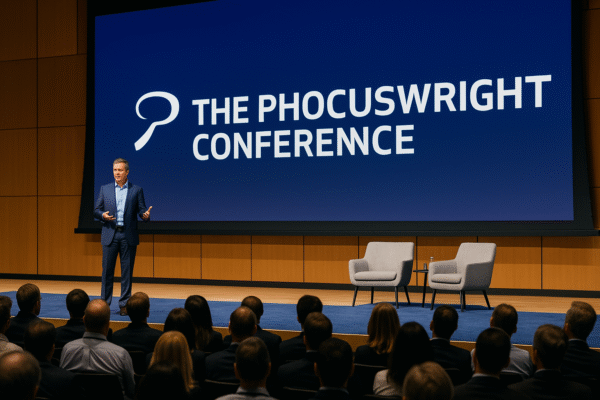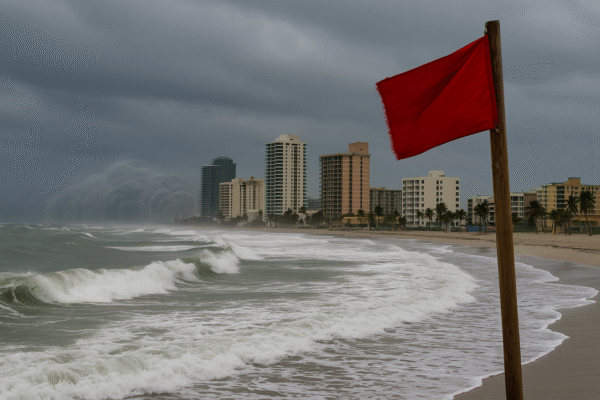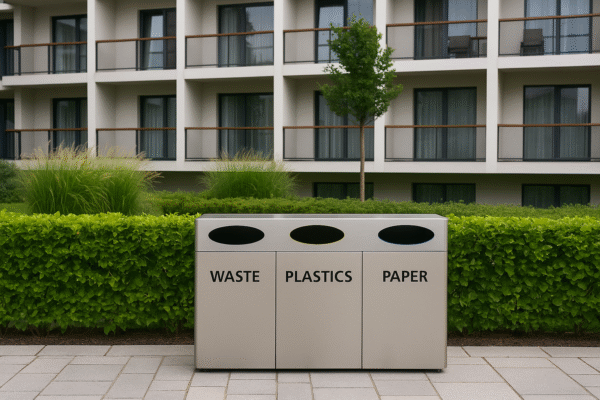As the world’s travelers become more environmentally conscious, Germany’s hospitality industry is responding with cutting-edge, sustainable waste management strategies. Recent data from WWF Germany highlights a pressing challenge: hotel guests in the country generate up to 1.5 kilograms of waste per night, with nearly 50% consisting of packaging waste such as plastics, cardboard, and paper.
In response, a growing number of hotels across Germany are turning toward green technologies, smarter purchasing decisions, and guest-engagement campaigns to minimize their environmental impact and meet rising consumer demand for eco-friendly travel experiences.
Legal Mandates Are Driving Hotel Sustainability
Germany introduced a mandatory reusable packaging law in 2023 targeting the food and hospitality sectors. While implementation has faced hurdles—especially due to hygiene concerns and logistical constraints—many hotels are rising to the challenge.
Sustainable waste management is no longer a niche priority but a legal and consumer expectation. Hotels that proactively adapt are not only ensuring regulatory compliance but are also gaining a competitive advantage among green-minded travelers.
How Smart Waste Management Benefits Hotels
Hotels adopting sustainable waste management systems are seeing clear benefits:
- ✅ Cost Reduction: Lower disposal fees and reduced spending on single-use materials
- ✅ Improved Brand Image: Positive guest perception boosts loyalty and online reviews
- ✅ Operational Efficiency: Waste-tracking tools streamline purchasing and inventory
- ✅ Legal Readiness: Staying ahead of EU-wide and national regulations
- ✅ Environmental Impact: Reduced carbon emissions, less landfill contribution, and better use of resources
Tech-Driven Waste Reduction: German Hotels Lead by Example
Several properties across Germany are setting new benchmarks for waste reduction using digital innovations:
🔹 Hotel Weihrerhof (South Tyrol)
This eco-friendly retreat uses a custom app, “My Monitoring,” to track waste, energy, and water consumption. The system has enabled the hotel to reduce PET bottle use and water consumption per guest. True to its sustainability mission, the hotel shares this app with other hoteliers at no cost, promoting collaboration in the eco-hospitality sector.
🔹 SANDnature Hotel (Timmendorfer Strand)
This coastal hotel utilizes the GreenGuide app to measure organic waste—especially food scraps. Since implementation, they’ve reduced food waste by 30%, significantly lowering CO₂ emissions.
Reducing Waste at the Source
Prevention is more effective than management, and several properties are implementing source reduction strategies:
🔹 Birkenhof*** Spa & Genussresort**
Located in Bavaria, this resort partners with a local waste disposal firm to analyze waste streams. Insights from waste audits have led to reduced plastic use and more sustainable packaging across spa and dining services.
🔹 Green City Hotel Vauban (Freiburg)
This urban hotel bulk orders goods to avoid unnecessary packaging and maintains a closed-loop system by recycling and repurposing materials. It proudly holds the DEHOGA gold environmental certification, proving that sustainability can thrive even in budget-friendly hotels.
Holistic Waste Categorization and Closed Loops
Waste sorting isn’t just about separating trash—it’s about understanding environmental impact:
🔹 SCHWARZWALD PANORAMA (Bad Herrenalb)
This hotel sorts its waste into 15 separate categories and uses a CO₂ tracking tool to evaluate its environmental impact annually. These insights guide more informed procurement and waste reduction strategies.
🔹 Naturresort Gerbehof (Lake Constance)
Located near one of Germany’s most scenic lakes, this resort uses closed-loop waste cycles. Kitchen scraps like coffee grounds and eggshells are composted on-site and used to fertilize gardens, minimizing landfill contributions and supporting on-property food production.
The Role of the Green Pearls® Network
Many of these pioneering hotels are part of the Green Pearls® network—a collective of environmentally and socially responsible hospitality providers. This network is pushing toward a zero-waste future by:
- Encouraging transparent waste audits
- Sharing best practices among members
- Supporting supplier networks focused on sustainability
- Engaging guests in eco-conscious behavior
Their philosophy is simple: Sustainability isn’t a trend—it’s a journey. And the roadmap includes both innovation and accountability.
Guest Involvement and Behavioral Change
Sustainable tourism isn’t just the responsibility of hotels—it’s a shared commitment. Hotels across Germany are increasingly encouraging guests to:
- Use in-room recycling bins
- Refill reusable water bottles at hydration stations
- Participate in towel and linen reuse programs
- Support local eco-friendly products and crafts
By involving travelers, hotels not only reduce waste but also foster a culture of sustainability that guests take home with them.
What Lies Ahead for Germany’s Green Hospitality
Germany’s hotel sector is proving that sustainability and luxury are not mutually exclusive. Through smart design, strategic partnerships, and guest collaboration, these hotels are creating experiences that are both indulgent and environmentally responsible.
Looking forward, further adoption of AI-driven waste analytics, smart procurement, and green certifications is expected to become standard. Backed by supportive policies and a highly engaged travel community, Germany is well-positioned to lead the global hospitality industry in eco-conscious practices.
Final Thought
Germany’s hotels are not just reducing waste—they’re redefining what sustainable travel looks like. By leveraging digital tools, adjusting operations, and aligning with eco-conscious travelers, these hotels are setting a bold example of how tourism can thrive without compromising the planet.
Whether it’s a scenic resort on Lake Constance or a modern eco-hotel in Freiburg, Germany’s commitment to green hospitality is clear—and growing.
For more travel news like this, keep reading Global Travel Wire














